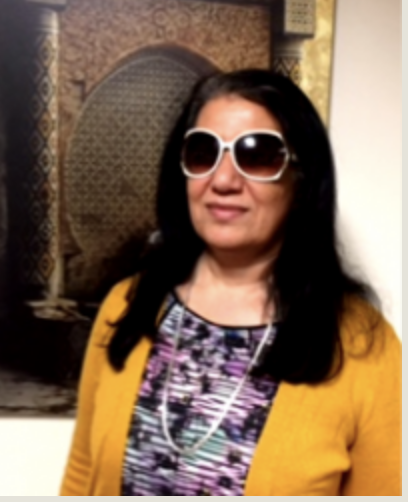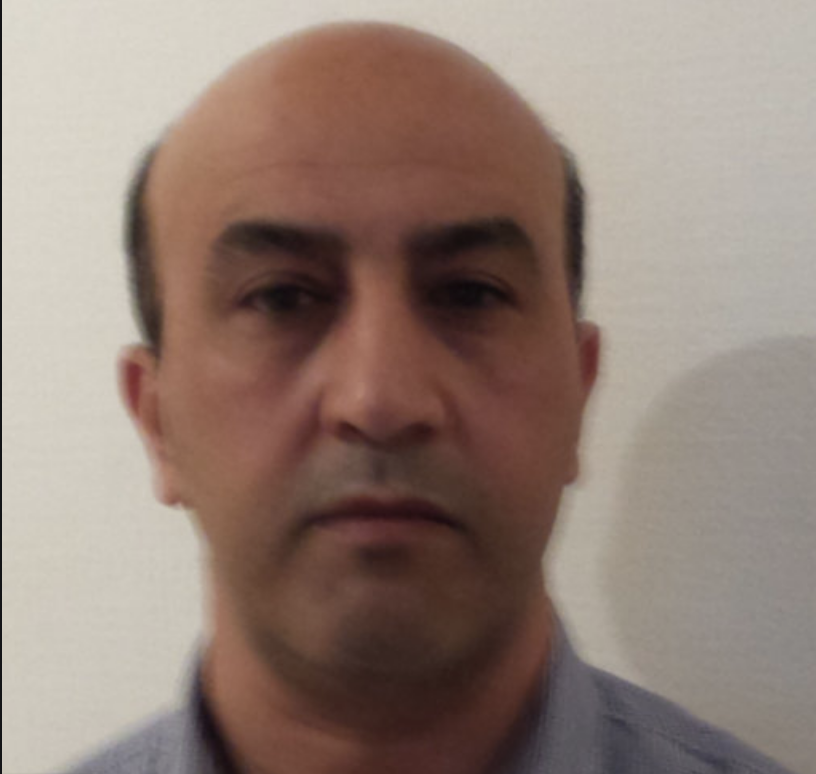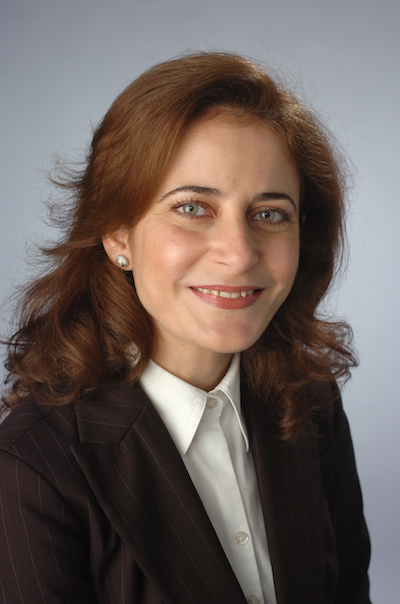Professor Rania Habib
Dr. Rania Habib is an Associate Professor of Linguistics and Arabic and the Coordinator of the Arabic Program in the Department of Languages, Literatures, and Linguistics in Syracuse University. She specializes in sociolinguistics with focus on language variation and change and the influence of urban dialects on rural ones through speakers’ migration to urban centers or through the spread of urban linguistic features to rural areas. She is also interested in discourse analysis, bilingualism and child and adolescent language and second language/dialect acquisition. Her research is interdisciplinary and applies diverse qualitative and quantitative methods of analyses to sociolinguistic variation and change, including Optimality Theory and the Gradual Learning Algorithm. It deals with numerous phonological variables and continues to explore other discourse variables, looking at social, psychological and ideological influences. Her research has appeared in prestigious journals such as Journal of Pragmatics, Language Variation and Change, and Journal of Child Language.
Link to Professor Habib's webpage: http://thecollege.syr.edu/people/faculty/pages/lang/habib-rania.html
 Professor Samira Farwaneh
Professor Samira Farwaneh
Dr. Samira Farwaneh is an Associate Professor of Arabic Language, Linguistics, and Pedagogy in the School of Middle Eastern and North African Studies at the University of Arizona, where she served as the Language Coordinator and Director of Graduate Studies. She received her MA from the University of Iowa and her Ph.D. from the University of Utah. She has taught Arabic at all levels, English as a second language (ESL), and developed several linguistics, sociolinguistics and pedagogy courses including Language and Society in the Middle East, Introduction to Arabic Linguistics, The phonology and morphology of Arabic dialects, Diglossia, and Teaching Arabic as a Foreign Language. Her research interests include Arabic dialect structure- particularly syllable structure and verb morphology, Language contact and language ideology within diglossic communities, and language and gender. She is the co-editor of Perspectives on Arabic Linguistics Volume 15, and Volume 24-25. Her present research focuses on indicators of complexity in Arabic dialects, vowel hiatus resolutions, and endangered dialect documentation and preservation.
Link to Professor Farwaneh's webpage: https://menas.arizona.edu/user/samira-farwaneh

Professor Mohamed Embarki
Professor of Arabic Language and Linguistics
Dr. Mohamed Embarki is a full Professor in Language Sciences at the University of Franche-Comté, Besançon, France. He started his academic career as a Senior lecturer in phonetics and phonology at Paul-Valéry University, Montpellier 3. He was a member of the Praxiling research team, a joint laboratory of CNRS (French National Centre for Scientific Research) and Paul-Valéry University, Montpellier 3. At the University of Franche-Comté, he served as the head of the Department of FFL (French as Foreign Language) and since 2016 he is the pedagogical Coordinator of the Master's degree of FFL. He held the responsibility of director of several research teams. The last team he led was CLD (Contexts, Languages, Didactics), a thematic Pole of the ELLIADD laboratory (EA 4661). His main interest has always been Arabic phonetics and phonology. He instrumentally explored several aspects of the Arabic language and its modern varieties from the acoustic and articulatory points of view. He is currently working on the place of French in the Arabic-speaking area.
Link to Professor Embarki's webpage: http://elliadd.univ-fcomte.fr/fiches/embarkimohamed
Professor Ahmad Alqassas
 Dr. Ahmad Alqassas (Ph.D., Linguistics, Indiana University-Bloomington) does research on comparative syntax, Arabic syntax, morphosyntax, acquisition and diglossia/variation. He draws mostly on data from dialectal and standard Arabic that bear on cross-linguistic phenomena related to the design of the language faculty. His research primarily investigates clausal architecture and structural dependencies in the major grammatical categories of Arabic. These categories include negation, tense/ mood/ aspect, negative sensitive items and coordination structures. His research on these categories investigates key issues in linguistic theory, particularly within Minimalist Syntax. Such issues include the role of linguistic parameters and interface effects in explaining the rich structural variation in Arabic. His book A Multi-locus Analysis of Arabic Negation: Micro-variation in Southern Levantine, Gulf and Standard Arabic has been published by Edinburgh University Press. His research includes the morphosyntax of agreement morphology in the nominal domain, such as numeral phrases and definiteness, and their role at the syntax-morphology interface within Distributed Morphology. His interests include the applications of linguistic theory to second/heritage language acquisition. He also teaches courses on Arabic linguistic analysis, dialectology, sociolinguistics, language policies/politics and political discourse.
Dr. Ahmad Alqassas (Ph.D., Linguistics, Indiana University-Bloomington) does research on comparative syntax, Arabic syntax, morphosyntax, acquisition and diglossia/variation. He draws mostly on data from dialectal and standard Arabic that bear on cross-linguistic phenomena related to the design of the language faculty. His research primarily investigates clausal architecture and structural dependencies in the major grammatical categories of Arabic. These categories include negation, tense/ mood/ aspect, negative sensitive items and coordination structures. His research on these categories investigates key issues in linguistic theory, particularly within Minimalist Syntax. Such issues include the role of linguistic parameters and interface effects in explaining the rich structural variation in Arabic. His book A Multi-locus Analysis of Arabic Negation: Micro-variation in Southern Levantine, Gulf and Standard Arabic has been published by Edinburgh University Press. His research includes the morphosyntax of agreement morphology in the nominal domain, such as numeral phrases and definiteness, and their role at the syntax-morphology interface within Distributed Morphology. His interests include the applications of linguistic theory to second/heritage language acquisition. He also teaches courses on Arabic linguistic analysis, dialectology, sociolinguistics, language policies/politics and political discourse.
Link to Professor Alqassas's webpage:https://gufaculty360.georgetown.edu/s/contact/00336000014TX9cAAG/ahmad-alqassas


